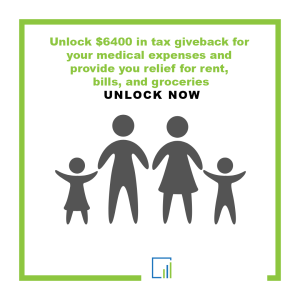Many people mistakenly believe their estate plans are complete after they decide on the strategies and have the documents prepared and executed.
A high percentage of plans fall short of meeting their owners’ goals and many become abject failures, though the plans looked good on paper.
The failures occur not when the plan is prepared but when it is implemented. We must rely on other people to implement an estate plan.
To increase the probability an estate plan will be successful, vital information must be provided to the people who will implement its different components. A plan can’t be properly implemented and achieve its goals if central players don’t know key facts.
The information can be provided easily but plans often fail because the information isn’t available when needed.
I knew about this issue for years, but it really hit home after I took over the affairs of my aging parents some years ago.
I was fortunate because my parents still were able to help when needed. My wife, Elaine, and I frequently say that as difficult as the process of reorganizing and managing their affairs was, it would have been worse if my parents weren’t still living or were cognitively impaired when we became involved.
I regularly meet people who had to handle their parents’ affairs after the parents passed away or couldn’t help for other reasons. Frequently, there were additional expenses, work and frustration that should have been unnecessary. It’s not unusual for assets and benefits to be lost because no one knew about them.
Often, memories of parents are diminished by the experience.
Most estate owners don’t realize the scope of the information others need or assume they already have the knowledge. Others think they’ll have time to communicate the facts but never get around to it.
To ensure the estate plan’s success, be sure those who will need it are provided with key data and documents.
Personal information and documents are essential for anyone who will help with your medical care, financial affairs, any kind of personal assistance, or administering your estate.
Key information includes your full name and any previous names, birth date, Social Security number, Medicare number, veteran’s information, driver’s license information, and any similar information.
The documents supporting this information — such as your Medicare card, birth certificate passport, marriage and divorce records, and driver’s license – often are essential.
All residential addresses during your adult years and your parents’ full names and any personal information you have about them also can be helpful.
These days, many businesses are concerned about identity theft and elder fraud and abuse. Loved ones, executors and others need to do much more than say they are relatives or friends when they want to obtain basic information or try act on someone’s behalf.
Even when we held powers of attorney and were co-trustees of a living trust for my parents, Elaine and I had to jump through a lot of hoops before financial service firms and medical providers would recognize the powers under the documents.
Three key documents are an advance medical directive or similar document, a durable power of attorney (also known as a financial power of attorney) and a living trust, if you want one.
People empowered under these documents need to know they are named in the documents and be able to locate them. Others in the family need to know who’s empowered to act under the documents. Having all the right estate planning documents doesn’t do any good if no one knows about them or can access them.
Of course, you also should have an updated will. All your children should know at least who is named as estate executor, so he or she can be contacted.
The executor, and probably some key members of your family, should know where the original copy of the will is kept. Many states require the original to be filed with the probate court. If the original can’t be found, there can be delays in settling your estate.
There’s no reason to distribute copies of the will. But it’s a good idea to let the children know its general contents so major surprises are avoided.
If you have a living trust, assets owned by it avoid probate. They won’t be subject to the terms of the will or public scrutiny. A successor trustee takes over when you can’t, not necessarily your agent under a power of attorney or your executor.
Your children need to know if you have a living trust, where the trust agreement is and who the current and successor trustees are. The successor trustee and your executor should know which assets are owned by the trust and which aren’t.
Part of the estate planning package should be an inventory of your estate, including digital assets.
The inventory lists your different assets and accounts and any debts and liabilities. It’s best to supplement the information with the latest account statements or information about where those can be found.
Instructions for obtaining access to websites and digital assets is essential today. Don’t force your executor and others to engage in searches or other actions to locate passwords and other access information.
An estate plan covers more than what happens after we’re gone. Parts of the plan can take effect during your lifetime and ensure you are cared for. That’s why your family and others need to know your medical information and care preferences.
You know the questionnaire you complete on the first visit to a doctor or medical provider?
Your loved ones need to know that information, such as current medications, medical history and allergies. Even people who aren’t empowered to act under your advance medical directive should have access to the information, because almost anyone could be taking you to a doctor’s appointment or an emergency department.
The best plan is to have a list you periodically update and make the list’s location known to those who might need it at some point. Even better is to email it to key people whenever it is updated or store it online in a way that those who might need it can access it.
Many medical records now are online. If that’s true of your medical records, you can avoid the chore of making and updating a list. Instead, loved ones should know how to access the online records and be able to tell medical providers how to gain access.
It is a good idea to decide your preferences for living arrangements and care decisions before the need seems imminent.
Do you prefer to live at home with visits by home aides, health aides and nurses as needed? Technology is making it possible for more people to stay at home than could in the past. Or would you prefer an independent living or assisted living residence, whichever your needs warrant? Some people prefer the increased social contact and full-time staff of those residences.
Ideally, you decide the general area in which you’d like to live and investigate a few alternatives in the area, narrowing down your preferences. If you don’t do this work and make your preferences known, the decisions will be made by others.
Of course, let those who might make decisions for you know what your plan is to pay for any care you need. Be sure they know if you have long-term care insurance or plan to use other resources.
Many people overlook the need for others to know about insurance and related financial information.
Medical insurance is the most important for retirees. Of course, family and friends need to know where your Medicare card is. They also need to know about Medicare supplement policies, Part D prescription drug coverage, veterans’ benefits, employer coverage and any other medical coverage you have. If you’re in a Medicare Advantage plan instead of original Medicare, be sure that’s clear to everyone.
Other insurance policies — such as life, homeowner’s, flood and auto — could be important at some point. Be sure your spouse, your agents under a power of attorney, executor, and successor trustee under a living trust know about your insurance coverage and where to find the policies. Don’t forget any coverage from former employers, veterans’ programs, credit card programs and any others for which you’re eligible.
A list of financial professionals and their contact information is important for those who will help with your finances.
This list should include financial firms where you have accounts, life insurance agents or companies, your attorney, any accountant or tax preparer you use, and perhaps other professionals. The professionals can ease the process of finding and managing all the assets, settling the estate, filing insurance claims, and more.
Key sources of disagreements among children and other loved ones are the final arrangements.
It’s not unusual for one person to remember a casual comment made years earlier and interpret that as a last wish. Sometimes two or more people have contradictory memories about your comments. The final arrangements are something you should give some thought to, write down any preferences you have and let others know about them.
An estate plan isn’t complete until the information is compiled and made available to those who will need it. Some information needs to be available only to those who will be empowered to act for you. Other information should be available to most family members and even some friends and neighbors.
It’s important to make the information available before the need is apparent. You are unlikely to be able to help provide answers when the information really is needed.
Read the full article here













